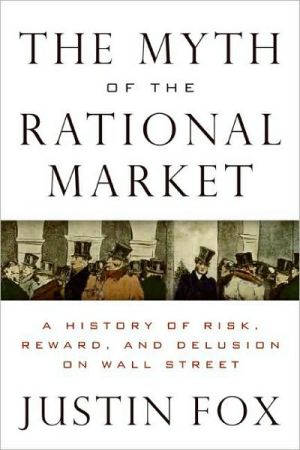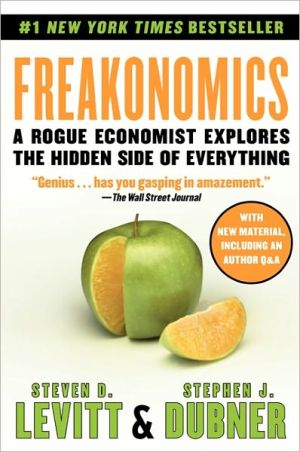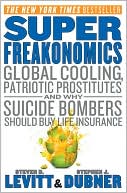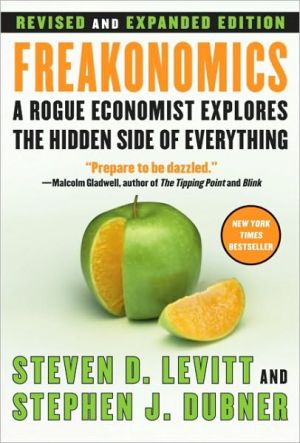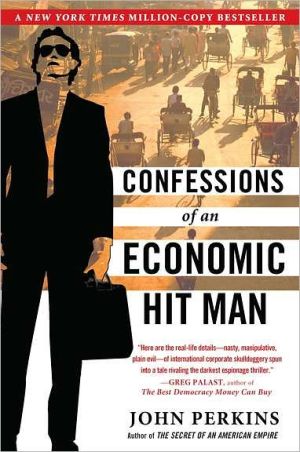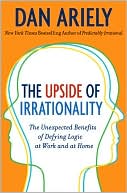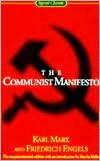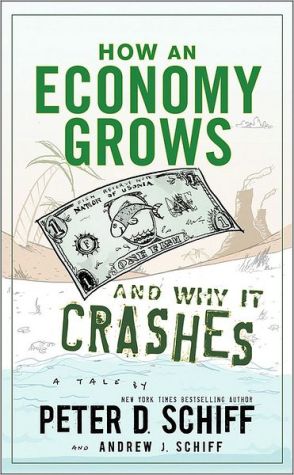The Myth of the Rational Market: A History of Risk, Reward, and Delusion on Wall Street
Chronicling the rise and fall of the efficient market theory and the century-long making of the modern financial industry, Justin Fox's The Myth of the Rational Market is as much an intellectual whodunit as a cultural history of the perils and possibilities of risk. The book brings to life the people and ideas that forged modern finance and investing, from the formative days of Wall Street through the Great Depression and into the financial calamity of today. It's a tale that features...
Search in google:
"Justin Fox is a truly insightful fellow who can see things with his own eyes--a rare, very rare attribute." Nassim Nicholas Taleb, author of The Black Swan"This wise and witty book is must reading for anyone who wonders what makes financial markets tick. Even those who have wrestled with this question for years will be glad to have read Fox's compelling history." Peter Bernstein, author of Against the Gods and Capital Ideas CHRONICLING the rise and fall of the efficient market theory and the century-long making of the modern financial industry, Justin Fox's The Myth of the Rational Market is as much an intellectual whodunit as a cultural history of the perils and possibilities of risk. The book brings to life the people and ideas that forged modern finance and investing, from the formative days of Wall Street through the Great Depression and into the financial calamity of today. It's a tale that features professors who made and lost fortunes, battled... The New York Times - Paul Krugman Do we really need yet another book about the financial crisis? Yes, we do—because this one is different. Instead of focusing on the errors and abuses of the bankers, Fox…tells the story of the professors who enabled those abuses under the banner of the financial theory known as the efficient-market hypothesis. Fox's book is not an idle exercise in intellectual history, which makes it a must-read for anyone who wants to understand the mess we're in.
Introduction: It Had Been Working So Exceptionally Well xi\ Early Days\ 1 Irving Fisher Loses His Briefcase, and Then His Fortune 3\ The first serious try to impose reason and science upon the market comes in the early decades of the twentieth century. It doesn't work out so well.\ 2 A Random Walk from Fred Macaulay to Holbrook Working 26\ Statistics and mathematics begin to find their way into the economic mainstream in the 1930s, setting the stage for big changes to come.\ The Rise, of the Rational Market\ 3 Harry Markowitz Brings Statistical Man to the Stock Market 47\ The modern quantitative approach to investing is assembled out of equal parts poker strategy and World War II gunnery experience.\ 4 A Random Walk from Paul Samuelson to Paul Samuelson 60\ The proposition that stock movements are mostly unpredictable goes from intellectual curiosity to centerpiece of an academic movement.\ 5 Modigliani and Miller Arrive at A Simplifying Assumption 75\ Finance, the business school version of economics, is transformed from a field of empirical research and rules of thumb to one ruled by theory.\ 6 Gene Fama Makes the Best Proposition in Economics 89\ At the University of Chicago's Business School in the 1960s, the argument that the market is hard to outsmart grows into a conviction that it is perfect.\ The Conquest of Wall Street\ 7 Jack Bogle Takes on the Performance Cult (And Wins) 111\ The lesson that maybe it's not even worth trying to beat the market makes its circuitous way into the investment business.\ 8 Fischer Black Chooses to Focus on the Probable 132\ Finance scholars figure out some ways to measure and control risk. More important, they figure out how to get paid for doing so.\ 9 Michael Jensen Gets Corporations to Obey the Market 153\ The efficient market meets corporate America. Hostile takeovers and lots of talk about shareholder value ensue.\ The Challenge\ 10 Dick Thaler Gives Economic Man A Personality 175\ Human nature begins to find its way back into economics in the 1970s, and economists begin to study how markets sometimes fail.\ 11 Bob Shiller Points Out the Most Remarkable Error 191\ Some troublemaking young economists demonstrate that convincing evidence for financial market rationality is sadly lacking.\ 12 Beating the Market with Warren Buffett and Ed Thorp 211\ Just because professional investors as a group can't reliably outperform the market doesn't mean that some professional investors can't.\ 13 Alan Greenspan Stops A Random Plunge Down Wall Street 227\ The crash of 1987 exposes big flaws in the rational finance view of risk. But a rescue by the Federal Reserve averts a full reexamination.\ The Fall\ 14 Andrei Shleifer Moves Beyond Rabbi Economics 247\ The efficient market's critics triumph by showing why irrational market forces can sometimes be just as pervasive as the rational ones.\ 15 Mike Jensen Changes His Mind About the Corporation 265\ The argument that financial markets should always set the priorities-for corporations and for society-loses its most important champion.\ 16 Gene Fama and Dick Thaler Knock Each Other Out 287\ Where has the debate over market rationality ended up? In something more than a draw and less than a resounding victory.\ Epilogue: The Anatomy of A Financial Crisis 309\ Afterword 323\ Cast of Characters 329\ Acknowledgments 337\ A Note on Sources 339\ Notes 341\ Index 379
\ Paul Krugman"Do we really need yet another book about the financial crisis? Yes, we do — because this one is different. Fox’s book is not an idle exercise in intellectual history, which makes it a must-read for anyone who wants to understand the mess we’re in."\ \ \ \ \ Nassim Nicholas Taleb"Justin Fox is a truly insightful fellow who can see things with his own eyes—a rare, very rare attribute."\ \ \ Roger Lowenstein"A fascinating historical narrative."\ \ \ \ \ Peter Bernstein"This wise and witty book is must reading for anyone who wonders what makes financial markets tick. Even those who have wrestled with this question for years will be glad to have read Fox’s compelling history."\ \ \ \ \ Barry Ritholz"Good wonky fun."\ \ \ \ \ Dan Neil"A tough, tasty steak of a book."\ \ \ \ \ Cory Doctorow"A thoughtful, often fascinating, always illuminating history of the idea of market rationality."\ \ \ \ \ St. Louis Post-Dispatch"Fox makes business history thrilling."\ \ \ \ \ Barron's"A lucid, lively and learned account."\ \ \ \ \ American Scientist"Superbly accurate and readable... Clearly the result of many years of research and reading,... it is a model of what the popularization of social science can be, but too rarely is, and it will continue to be read when the current crisis is many years behind us."\ \ \ \ \ Financial Times"Impressively broad and richly researched."\ \ \ \ \ Bloomberg"...a rich history of the world’s most seductive investing idea...the book chronicles the rise of rational market theory over the decades and captures the sizzle and pop of the intellectual debate ..."\ \ \ \ \ The Economist"An intellectual tour-de-force..."\ \ \ \ \ Roger LowensteinFox…spins a fascinating historical narrative, beginning with economist Irving Fisher's paean to markets in, alas, 1929.\ —The Washington Post\ \ \ \ \ Paul KrugmanDo we really need yet another book about the financial crisis? Yes, we do—because this one is different. Instead of focusing on the errors and abuses of the bankers, Fox…tells the story of the professors who enabled those abuses under the banner of the financial theory known as the efficient-market hypothesis. Fox's book is not an idle exercise in intellectual history, which makes it a must-read for anyone who wants to understand the mess we're in.\ —The New York Times\ \ \ \ \ Publishers WeeklyAt the core of the current financial crisis has been the widely held assumption that markets behave rationally. Fox, Time magazine editor-at-large, isn't the first to bring scrutiny-or censure-to the conceit, but his analysis is singularly compelling, and the rare business history that reads like a thriller. Fox leads us on a chronological journey of modern economic theory, featuring the cast of scholars who constructed the 20th- and 21st-century financial landscape, from Irving Fisher to such post-WWII figures as Milton Friedman, Harry Markowitz, Franco Modigliani and Merton Miller, Jack Treynor and William Sharpe. Fox offers a behind-the-scenes glimpse at academia's finest, complete with amusing anecdotes about the players and their theories, and illustrates how our economic behaviors and markets have been shaped by a gradually refined theory holding that the stock market prices are both random and perfectly rational. A must-read for anyone interested in the markets, our economy or government, this dense but spellbinding work brings modern finance and economics to life. (July)Copyright © Reed Business Information, a division of Reed Elsevier Inc. All rights reserved.\ \ \ \ \ \ Library JournalFox, a Time editor at large and economics columnist, here takes readers through the history of academic research on financial markets since the late 19th century. He focuses on the development of the Efficient Market Theory and its fall from dominance, which resulted largely from the rise of behavioral finance. The Efficient Market Theory uses mathematical models to show that investors act on information as it becomes available, making pricing so efficient that an investor would be unable to beat the market without insider information. Fox argues convincingly that this theory has been eclipsed by behavioral finance, which studies investors' psychology to show that markets are not as rational as the Efficient Market Theory presents. The style here is journalistic, with personal stories that make the book entertaining, but ultimately this is a history of academic thought-complete with endnotes-and is best suited for students of finance or people interested in financial theory.\ —Robbie Allen\ \ \
